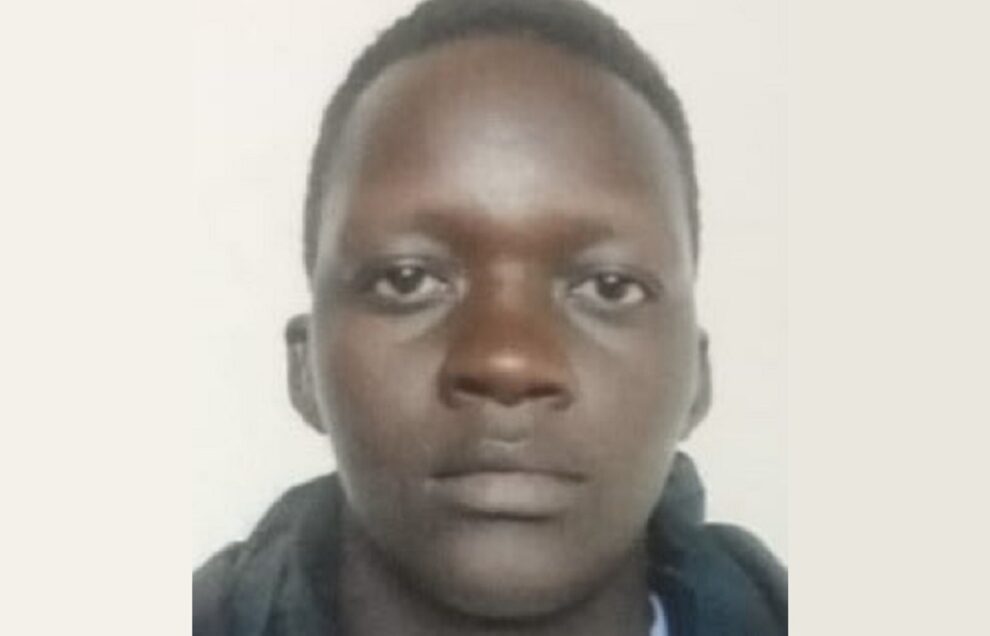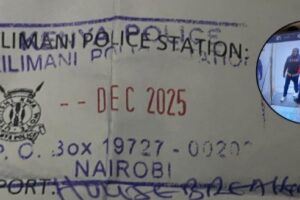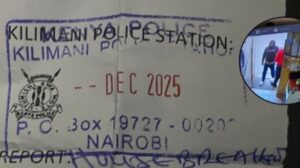The disappearance of Kenyan lawyer and entrepreneur Fredrick Lorent Obuya in Tanzania has sparked fear, outrage, and calls for urgent action from both governments.
Obuya, who was last seen on October 31, 2025, was reportedly arrested by Tanzanian police in Dar es Salaam while traveling for business.
Since then, his whereabouts remain unknown, deepening the anxiety of his family and friends who have been pleading for answers.
Obuya, aged 29, had traveled to Tanzania for a work-related trip to Zanzibar but was allegedly detained by plain-clothes officers near Oyster Bay. Witnesses claim he was briefly held at a local police station before all contact was cut off.
Human rights activists, including VOCAL Africa CEO Hussein Khalid, have confirmed receiving reports of Obuya’s arrest and disappearance, describing the case as deeply concerning given the tense environment in Tanzania following its disputed election.
The Tanzanian police have remained silent on the matter, providing no official statement or acknowledgment of his arrest. This silence has intensified pressure on both Tanzanian and Kenyan authorities to clarify what happened.
Family members say Obuya’s phone went off minutes after he called a colleague to report that he had been stopped by security officers. Since then, every effort to locate him, including visits to police stations and the Kenyan embassy, has failed.
Kenyan officials and civil society groups are now demanding immediate intervention. Legislators such as Embakasi East MP Babu Owino have written to Foreign Affairs Cabinet Secretary Musalia Mudavadi, urging the ministry to take firm diplomatic steps.
“Every Kenyan abroad deserves protection and fair treatment,” Owino said, adding that silence from Tanzanian authorities only fuels suspicion.
The timing of Obuya’s disappearance has raised further alarm because it coincides with a wave of violence and arrests in Tanzania.
The unrest erupted after the contested October 29 election, which left hundreds dead and many others missing.
Reports from Dar es Salaam indicate that authorities have used force against protesters, and journalists have faced intimidation for covering the unrest.
President Samia Suluhu has dismissed these reports, blaming unnamed foreign elements for instigating the violence—a statement that has sparked concern that Kenyans and other foreign nationals may be unfairly targeted.
Tragically, Obuya’s case is not isolated. Another Kenyan, teacher John Okoth Ogutu, was recently confirmed dead after being attacked during the post-election chaos.
His killing, combined with Obuya’s disappearance, has increased fear among Kenyans living in Tanzania and their families back home.
Regional analysts now warn that continued silence could harm relations between Kenya and Tanzania.
There are growing calls for the East African Community and the African Union to step in and ensure transparency in handling such cases.
VOCAL Africa and other human rights bodies are demanding that Tanzanian authorities either release Obuya or disclose his location without delay.
Those who know Obuya describe him as a passionate young professional dedicated to promoting tourism and social justice across East Africa.
His friends say he believed in cooperation between Kenya and Tanzania and had no political involvement that would warrant his detention.
His loved ones cling to hope that he will return safely as pressure mounts on authorities to end the silence and reveal the truth about his fate.





















Add Comment